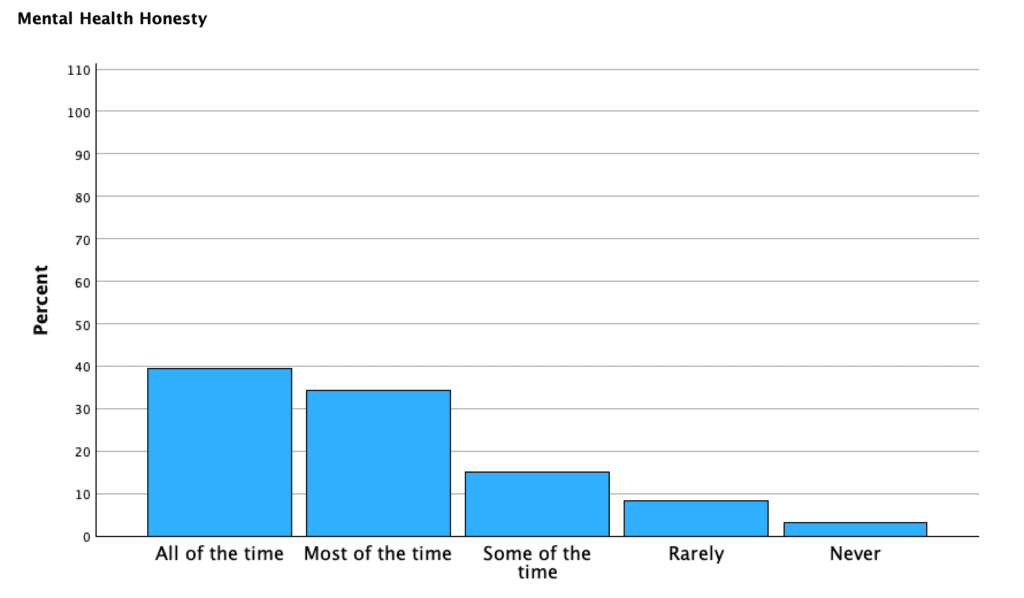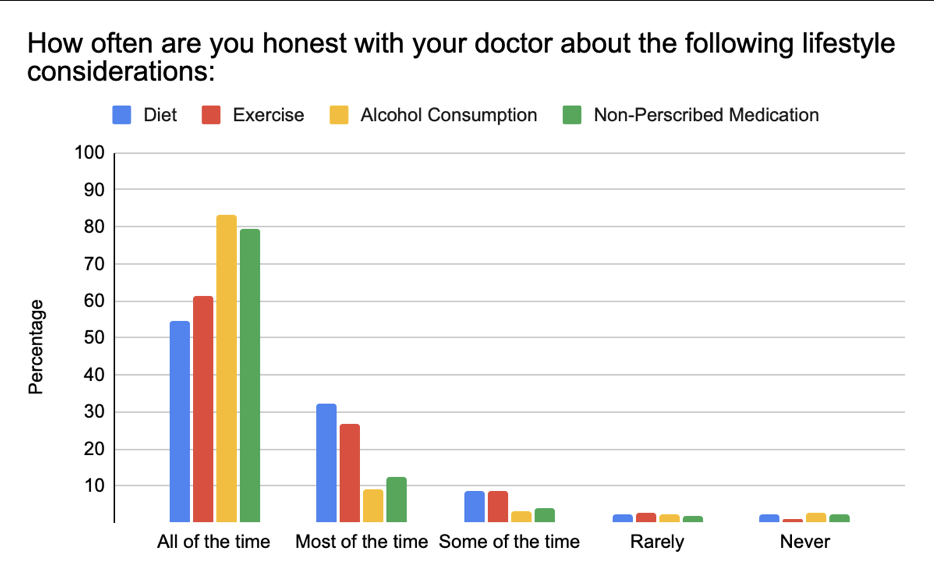Learn more about our FREE COVID-19 Patient Support Program for chronic illness patients and their loved ones.
We understand that living with a chronic illness affects not just your physical health but also your mental well-being and quality of life. Members of our CreakyJoints community explain that chronic pain can overwhelming and isolating, especially when others just don’t fully grasp what it’s like to live with chronic illness. Research also suggests a strong link between living with chronic illness and mental illness, and people with depression are more likely to develop a chronic illness.
We understand that discussing your mental health and quality of life with your provider can be challenging, especially while managing the physical symptoms of your condition. Every community and individual has unique mental health goals, concerns, and treatment preferences, making it crucial to identify the barriers to these conversations.
To better understand these challenges, the Global Healthy Living Foundation conducted a poll within our patient community to explore the reasons why some feel comfortable sharing with their provider on various topics, including mental health, while others do not. The findings: Most people with chronic illness are honest with their doctor about how their condition has affected their quality of life and mental health.
Out of 1,404 responses, 81 percent reported being honest all or most of the time with their doctor on how chronic illness impacts quality of life, including overall health and well-being, ability to work, spending time with loved ones/friends, or participating in activities or hobbies.
In the free response section of the poll, we learned some common reasons why the 19 percent are honest some, rarely, or never of the time:
- My doctor is busy and does not have time to listen to me.
- My doctor does not seem interested when I describe my difficulties.
- I don’t want them to try and change my current treatment.
- I don’t want to be seen as a person who complains; I want to appear strong.
When it came to being honest about mental health, 74 percent reported being honest all or most of the time.


We also asked our community to tell us, “Why do you think you may not always have an open conversation with your doctor about your mental health?” Here are the common themes from those responses:
- I don’t want to be labeled with a mental health condition.
- I don’t have enough time during an appointment to discuss mental health.
- I don’t want more medication.
- I don’t want to make my provider uncomfortable by talking about my mental health.
- My provider does not ask about my mental health.
- My provider does not care about my mental health.
- I speak about my physical symptoms with one provider, and my mental health with a different mental health practitioner.
We then got more specific to see how patients are truthful or not about their habits, such as diet, exercise, alcohol consumption, and the use of non-prescribed medication.
When it comes to being honest all or most of the time, here’s what we learned:
- 87 percent are honest about diet
- 88 percent are honest about exercise
- 92 percent are honest about alcohol consumption
- 92 percent are honest about non-prescribed medications


For the small percentage who are not honest, many shared that they are embarrassed, don’t want to be lectured about lifestyle, or they don’t have enough time to discuss it during the visit.
The bottom line: While it may be difficult, being honest with your doctor will help ensure that they can meet you where you are and create a treatment plan that aligns with your lifestyle and goals.
Get Mental Health Support
Be sure to reach out to your doctor to learn about resources that can help you best manage your mental health and chronic illness together, so you can live your healthiest life possible. If you or someone you know needs support now, call or text 988 or chat at 988lifeline.org/chat.
About the Patient Support Program Quick Poll
We regularly poll our community who live with inflammatory arthritis and other chronic conditions, who live in the U.S. as well as around the globe, about a variety of topics, including how chronic illness and/or COVID-19 is affecting their lifestyle, mental health, chronic disease management, medication adherence, and more.
We use this information to inform the educational resources we provide and to inform other stakeholders — such as public health experts, policymakers, advocacy groups, health care professionals, and pharmaceutical companies — about chronic illness patients’ needs and concerns. You can participate in ongoing poll by joining the support program here.
.
Understanding the Link Between Chronic Disease and Depression. National Institute of Mental Health. 2024. https://www.nimh.nih.gov/health/publications/chronic-illness-mental-health.






